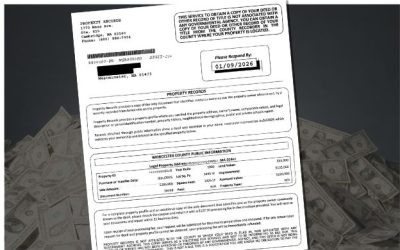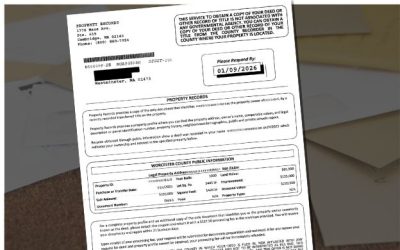SUMMARY: Starting March 1, 2026, FinCEN’s Residential Real Estate Rule requires a Real Estate Report for certain non-financed residential transfers where the buyer is an entity or trust (common “cash/opaque ownership” scenarios). Real estate agents do not file the...

When a Home Sale Falls Through: What Massachusetts Buyers and Sellers Can (and Should) Do Next
When a Home Sale Falls Through
What Massachusetts Buyers and Sellers Can (and Should) Do NextIn Massachusetts, even a well-planned home sale can fall apart at the last minute. Financing issues, appraisal gaps, inspection disputes, or sudden buyer’s remorse can bring a transaction to a halt — leaving both sides uncertain about their next steps.
When that happens, knowing your legal rights and obligations becomes critical. A skilled Massachusetts real estate attorney can help you protect your interests, recover deposits, and decide whether to renegotiate or walk away. Here’s what to do if your deal doesn’t close as planned.
1. Review the Purchase and Sale Agreement
The first step after a failed transaction is to review the Purchase and Sale (P&S) Agreement, which outlines the rights, contingencies, and timelines for both buyer and seller.
Most Massachusetts P&S agreements include detailed inspection, appraisal, and financing contingencies that determine whether a deposit is refundable. The Massachusetts Association of Realtors explains that these contingencies act as legal “escape hatches” if specific conditions aren’t met before closing (MAR, 2025).
Attorney’s Insight:
Your attorney can interpret the contract’s fine print and identify whether you’re entitled to a refund or release. Acting quickly helps prevent misunderstandings that could escalate into legal disputes or escrow delays.
2. Handling Deposit (Escrow) Disputes
In most Massachusetts home sales, the buyer deposits earnest money — typically held in an attorney’s escrow account — to show good faith. If the deal collapses, both parties must sign a mutual release authorizing return or forfeiture of those funds.
Without a signed release, the deposit often remains frozen until both sides reach agreement or a court intervenes. The Massachusetts Division of Banks outlines how escrow funds are protected under state trust-account regulations (Mass.gov, 2024).
Attorney’s Insight:
An experienced real estate attorney acts as a neutral fiduciary, ensuring deposits are managed according to Massachusetts law. If one party refuses to sign a release, your attorney can issue a demand letter or pursue mediation before litigation becomes necessary.
3. Inspection Failures and the New Law
Massachusetts’ new home inspection law, effective October 2025, introduced clearer buyer rights and stricter scheduling standards. Under the updated rules, buyers must complete inspections within a defined timeline — and sellers must allow reasonable access or risk violating the agreement.
As detailed in our earlier post, “What Buyers & Sellers in MA Should Expect Under the New Home Inspection Law”, these reforms help reduce last-minute cancellations and ambiguous repair disputes.
Attorney’s Insight:
If an inspection uncovers defects, your attorney can guide you through renegotiation — for example, by drafting an amendment for seller repairs or a price adjustment — or help you properly withdraw without losing your deposit.
4. Benefiting From the New Home Inspection Law
Even after inspections pass, deals can fail when the appraised value comes in below the agreed purchase price. Lenders rarely approve financing that exceeds appraisal value, leaving buyers to cover the gap or renegotiate.
According to Bankrate, appraisal shortfalls are one of the top reasons sales collapse nationwide.
Attorney’s Insight:
Your attorney can prepare an addendum for price renegotiation or an extension allowing time to resolve lender concerns. If financing ultimately falls through, counsel ensures proper documentation is filed so the transaction terminates cleanly.
5. Next Steps: Renegotiate, Release, or Pursue Legal Action
After reviewing all contingencies, your attorney may recommend one of three paths:
- Renegotiate: Adjust price, closing date, or repair terms to salvage the deal.
- Mutual Release: End the contract amicably, with a clear escrow disposition.
- Legal Remedy: If one party breached the contract, a demand letter or small-claims action may be appropriate.
The Massachusetts Trial Court Law Libraries provide guidance on breach-of-contract claims involving real estate transactions (Mass.gov, 2024).
Attorney’s Insight:
The key is acting quickly and documenting every communication. Your attorney ensures all notices and releases are executed properly to protect you from liability.
Closing Thoughts
Turn a Setback Into a Strategy
A failed home sale can feel like a setback, but it doesn’t have to become a legal nightmare. With the right representation, you can recover deposits, avoid costly disputes, and position yourself for the next opportunity.
The Law Office of David R. Rocheford, Jr., P.C. helps buyers and sellers across Massachusetts and New Hampshire navigate escrow disputes, renegotiations, and closing delays with confidence and clarity.
SOURCES
Bankrate. (2025, July). What happens if a house appraises low? Retrieved from https://www.bankrate.com/
Massachusetts Association of Realtors (MAR). (2025). Standard purchase and sale agreement guidelines. Retrieved from https://www.marealtor.com/
Massachusetts Division of Banks. (2024). Escrow and trust-account regulations for attorneys and brokers. Retrieved from https://www.mass.gov/orgs/division-of-banks
Massachusetts Trial Court Law Libraries. (2024). Real-estate contract disputes and remedies. Retrieved from https://www.mass.gov/orgs/trial-court-law-libraries
The Law Office of David R. Rocheford, Jr., P.C. (2025, September). What buyers & sellers in MA should expect under the new home inspection law. Retrieved from https://www.thebestclosings.com/2025/09/what-buyers-sellers-in-ma-should-expect-under-the-new-home-inspection-law/
Providing title, escrow, closing and settlement services to clients throughout Massachusetts and New Hampshire
Recent News
What Real Estate Agents Need to Know About FinCEN’s New Residential Real Estate Reporting Rule (Effective March 1, 2026)
Why New Homeowners Get Targeted After Closing
For many buyers, one of the most surprising parts of homeownership happens after the closing is complete: the sudden increase in mail related to their property. This isn’t accidental—and it isn’t unique to any one company or offer. It’s the predictable result of how...
New Homeowners Beware: “Recorded Deed” Letters That Aren’t What They Seem
Buying your first home is exciting—and it often comes with a mountain of paperwork. Unfortunately, it can also make you a target for misleading solicitations that appear official and urgent, but offer nothing you actually need.One of the most common examples we see...













